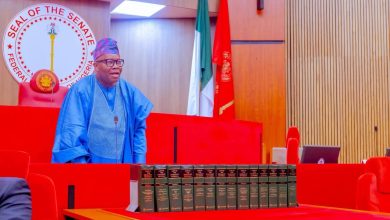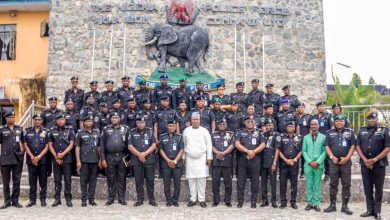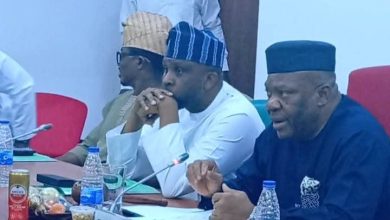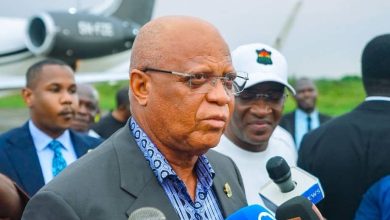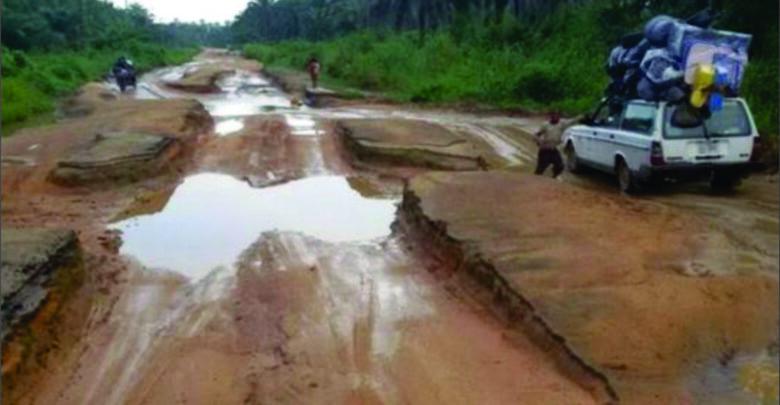
Less than two years to the end of the President Muhammadu Buhari-led administration, not even the Federal Government can tell with certainty what will be the final state of the East-West Road by the time it quits office on May 29, 2023.
However, there are fears amongst observers, especially in the Niger Delta region, that if the past six years were not enough for the APC administration to fulfill its truckloads of age-long promises on the road, no miracle can see it completed in the remaining period as was repeatedly trumpeted during and after the 2015 and 2019 presidential election campaigns.
There is also the Calabar-Itu Road. With the purported approval of N54billion for work to begin on the road in 2017, minister of works, Mr. Babatunde Fashola, and then senior Special Adviser to the President on National Assembly matters (Senate), Sen. Ita Enang, had said the suffering and uncountable deaths on that road would be a thing of the past within 18 months. That never happened.
Curiously, about that same period, there were allegations and suspicions of mischievous elements in government quarters having removed the road from the national budget in the infamous budget padding saga.
Today, the Calabar-Itu Road is worse than yesterday, still a political specimen of enticement. But there hasn’t been shortage of political promises and assurances by the Federal Government. Now, the next round of campaigns for 2023 is beckoning.
Although government officials used flights to go to Calabar, to avoid the inconveniences on the road, it has not changed the facts. Again, none of the four refineries in the country is said to be working.
Related: How Many Times Will Contract For Calabar-Itu Road Be Awarded”? X-Raying The Inyang-Eyen Interview
It is on this account that the recent approval of $11.12 billion dollars for the construction of Lagos-Calabar Coastal railway appears to be nothing to excite many in the Niger Delta, as some were quick to dismiss it as one of those stunts to gratify the gullible.
Recall that minister of information, Mr. Lai Mohammed, had conveyed the information after a Federal Executive Council meeting presided over by the Vice President, Prof. Yemi Osinbajo, during President Buhari’s London trip. Disclosing that the rail project is to link all the coastal routes, Mohammed added that the project is billed to take six years for completion.
There are worries over why the Federal Government that knows it will be vacating office in 2023 would be in such a hurry to approve a project it will not be supervising. This apprehension perhaps is made worse by the fact that the next administration may not see such a project as a priority or even consider it at all.
To some, therefore, that approval for Lagos-Calabar Rail may simply be a fluke. The preponderate argument is that government rather should concentrate on seeming on-going projects it promised the Niger Delta people and push them to some appreciable extent within the remaining time.
Interestingly, history shows that majority of things ever approved in favour of the Niger Delta by Osinbajo in the absence of President Buhari never came to fruition. In 2016, when the President was on an overseas trip, Vice President, Yemi Osinbajo had initiated a 16-Point Agenda with Pan-Niger Delta Forum (PANDEF) as part of his whistle statesmanship to clam nerves in the region.
Some of the demands in the 16-Point Agenda included – retention of the Presidential Amnesty Programme; establishment of a Maritime University in Okerenkoko, Delta State; upgrade of Maritime Academy of Nigeria, Oron, Akwa Ibom State, to a university or degree-awarding institution; transparent arbitration on law and justice issues; reducing military presence in the Niger Delta; the plights of internally displaced persons, the Ogoni Clean-up and environmental remediation.
Also in the document were building or siting of critical infrastructure; increased security surveillance, relocation of administrative and operational headquarters of international oil companies to the Niger Delta, power supply, economic development and empowerment of indigenes, inclusive participation in oil industry and ownership of oil blocs, restructuring and proper funding of the NDDC, strengthening the Niger Delta Ministry, the Bakassi question (a comprehensive resettlement plan for host communities and the displaced, and fiscal federalism).
Related: Lingering Calabar-Itu Road Project Saga: A’Ibom Alleges Foul Play By Sen Enang
The documents and bargains were officially presented to the President Buhari and signed on November 1, 2016. Out of these, only one or two of the requests may have been given partial attention. Following what the Niger Delta stakeholders saw as a long period of contrived silence or negligence by the Federal Government, they more than twice had threatened to cause trouble should situation remain the same.
Just in July 2021, in a 14-point communiqué signed by Chief Edwin Clark, after an extraordinary meeting on state of the nation, PANDEF expressed dismay and reminded President Buhari of his promises on the 16-Point Agenda and why there was no need for further delay. However, barely two weeks later, the Federal Government came up with the idea of the Lagos-Calabar rail route, which of course, was never part of the agenda.
Many therefore are of the opinion that as long as government never fulfilled its promises on comparably less demanding and capital intensive projects in the Niger Delta region, the recent promise has raised eyebrows. On a scale of preference, the East-West Road and Calabar-Itu Road should take the lion’s share of urgent attention at the moment.
There is also the fear that practically all rail projects handled by the present government are largely funded with debts or other forms of mutual commitments consummated between the Federal Government and China and other countries.
As was announced in February, 2017 by the minister of transportation, Mr. Rotimi Amaechi, the Federal Government secured $7.5bilion loan for the construction of standard rail gauge from Lagos to Kano. The loan was part of the $30billion the government had sought approval from the National Assembly.
A breakdown as was provided by the minister at a town hall meeting held in Ilorin for the people of Kogi, Niger and Kwara, showed that $1.4billion of the Chinese loan was the construction of the rail gauge from Lagos to Ibadan, while $6.1billion was for the Ibadan-Ilorin-Minna-Kaduna-Kano line.
Ordinarily, having a rail run from Lagos all the way to Calabar is not a bad idea, considering the many advantages of railway. It is argued that railway is cost effective. Experts say about 10-40per cent of fuel is saved on long-haul freight because rail consumes little.
According to the Association of American Railroads (AAR), shipping or transporting goods by rail is also believed to be more environmentally friendly as it lowers greenhouse gas emissions by 75 per cent. A train can move one ton of freight on average of 479 miles on a single gallon.
Railways are also reliable. AAR maintains that railways have standardized transit schedules and don’t share their tracks with the public like trucks would do, hence they do not experience traffic and weather limitations along the way. Trains can also haul large cargos on long distances.
There is also the merit of access to capacity because trains can readily be found and are scarcely in competetion for customers or clients in need. Rail is therefore seen as a big complement to intermodal or other forms of transportation.
By and large, in relation to infrastructure-cum-physical development of the Niger Delta, the federal government would score better points if it concentrates or expedites action on completing projects that are either ongoing or never started although budgets had been allocated for them.
Chief amongst these are the East-West Road, the Calabar-Itu-Ikot-Ekpene Aba Road, Ogoni Clean-Up, etc. Budgeting fresh sums for vague projects in view is not an economically sound approach.

